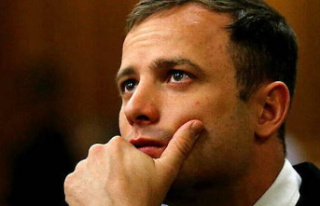Anaïs-Mai Desjardins, medical student and kitefoil champion, is preparing for the 2024 Olympic Games. Guest of the Dialogues de la santé devoted to prevention, an event organized by Villa M, in partnership with Le Point, on April 13 and 14, 2023 in Paris, she shares her perspective as a future doctor and athlete on the place that sport occupies in her daily life and the place she reserves for it with her future patients.
Le Point: You are a top athlete and future doctor. What connection do you make between sport and health?
Anaïs-Mai Desjardins: One does not go without the other. Sport allows me to escape, to release the pressure, to cut with revisions and therefore, to be more efficient in my way of working. Finally, I work less, but better.
When I started at the high level, I thought that my experience in competition would especially help me during the exams. But I finally realized that what I experience in the hospital is sometimes very similar to what I experience in competition and helps me enormously in my sports practice. Stress, for example, is the same for everyone, whether it is an athlete, a doctor or a patient. Some tools used in mental preparation could also be used in the hospital.
Is healthy sport sufficiently emphasized in medical school?
Apart from the sport option and one or two lines in certain chapters, we don't really talk about it. On the one hand because we focus more on care than on prevention, and on the other hand, because even if the desire is there, we don't really know how to go about it.
However, it is something that should be insisted on, without making people feel guilty. Rather than being injunction and making sport feel like an obligation, we should highlight the immediate benefits. Sport can be very liberating: you release the pressure of everyday life with, in addition, health benefits. Admittedly, at the beginning, it is not easy, but in order not to disgust the patient, it is necessary to accompany him and to go there gradually.
What, from what you have seen during your studies and your various internships, are the challenges that physicians face when prescribing physical activity?
I haven't seen a doctor prescribe physical activity yet, but I feel like in some cases it's not a very easy topic to talk about. However, we must talk about it no matter what and above all not make it a taboo, whatever the morphology or the state of health of the patient. We don't really know how or at what point in the treatment to approach it, whether to have a specialist appointment or to talk about it a little at each consultation.
How do you plan to inspire your future patients to engage in physical activity?
I have many ideas on the subject, but which mainly concern the overall care of the patient, both through sport, nutrition and psychology. Through my sport, I realize that everything is linked and that we can draw inspiration from aspects of performance - without being at the top level - to create a virtuous circle: thanks to sport, we feel better and people take better care of their physical and mental health.
Moreover, when we think of sport, we immediately think of running, cycling, people who sweat and are red... The goal is not to do competitive sport and start directly by running 10 km, but to move a little each day, to have a positive approach, to find an activity that you like and to go at your own pace. Even people who say they are “not sporty” can find a shoe that suits them.
Do you think the 2024 Olympic Games in Paris will encourage the French to do more sport?
I think so, given the magnitude of the event, the emotions it arouses, the incredible human experience it represents. The Olympics are in a year and a half and already, we feel all the excitement around. Some companies, for example, already organize activities around it to promote sport among their employees. That being said, the Games should not be seen as a final deadline, but rather as a stage, the idea being to keep moving afterwards.
Find the Health Dialogues event on April 13 and 14, 2023 at Villa M-Paris. This first edition has the theme "Prevention, at all costs". Free subscription to Live.












